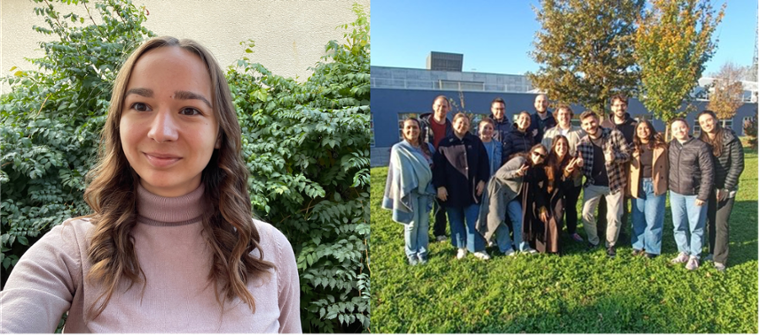© Nathan Lindstrom
An EUTOPIA Week Side Event Brings Science Diplomacy and Cultural Heritage into Unexpected Conversation
Venice—that impossible city slowly sinking into the lagoon that birthed it—proves the perfect setting for a conference on fragments. On 4 December, at the Teatrino di Palazzo Grassi, scholars, diplomats, curators, and artists gather to interrogate what remains of our heritage, and what we choose to do with the pieces.
"Science Diplomacy and Heritage: On the Politics of Fragments, the Role of Science, and the Perception of Lacunas" is conceived by Christina Hainzl of the University for Continuing Education Krems and Eric Piaget of Vrije Universiteit Brussel (representing EUTOPIA) as the most important side event to EUTOPIA Week, organised by Ca' Foscari University of Venice. The conference addresses two subjects fundamental to the EUTOPIA alliance: cultural heritage and science diplomacy.
The discussions cut to the heart of contemporary dilemmas. When a Roman marble sits in Berlin, a Benin bronze in London, or a Parthenon frieze in any capital but Athens, whose heritage is it? Ambassadors and archaeologists, diplomats and museum directors grapple with the sensitive dossier that occupies chancelleries for years—the restitution of artworks to their places of origin. This heritage diplomacy proves particularly delicate precisely because these artefacts touch the very identity of each nation, as Bénédicte Savoy demonstrates through her groundbreaking work at the Collège de France. One might say that the problem with cultural treasures is not that they matter too little, but that they matter too much.
Dan Hicks of Oxford opens with "Staying with the Fragments," whilst Peggy Oti-Boateng of the African Academy of Sciences addresses how technologies from satellite imaging to artificial intelligence are themselves diplomatic acts, requiring trust that transcends borders.
On of the day’s profound moments comes with Ali Cherri's "The Book of Mud." The artist's performance in the atrium of Palazzo Grassi transforms mud—neither fully earth nor entirely water—into a meditation on heritage itself. Like mud, heritage shifts beneath our feet. We cannot preserve it without changing it, cannot own it without acknowledging that others have claims upon it too. His Silver Lion from the 2022 Venice Biennale testifies to the power of such insights.
The establishment of the Science Diplomacy and Culture section within EUSDA marks a recognition that culture is foundational to how we navigate shared planetary challenges. This inaugural biennial conference will be followed by a publication, supported by the European Union Science Diplomacy Alliance, the Institute for the Danube Region and Central Europe, UNESCO, and Palazzo Grassi-Pinault Collection.
For EUTOPIA, these themes resonate with particular force. The Research Days, inaugurated during EUTOPIA Week in November 2024 at CY Cergy Paris Université, placed cultural heritage at the centre of the alliance’s research agenda, bringing together specialists from across all member universities. This Venice conference extends that conversation, demonstrating how ten universities can collectively train the next generation of heritage professionals capable of navigating contested terrain.
The artist asks: “If mud had a memory of its own, what would it deem worthy of remembrance?” Perhaps not our monuments to permanence, but our willingness to remain in conversation about what matters, even when the ground beneath us shifts.
To find out more about the conference, visit the
University for Continuing Education Krems website.
View the full programme here:

